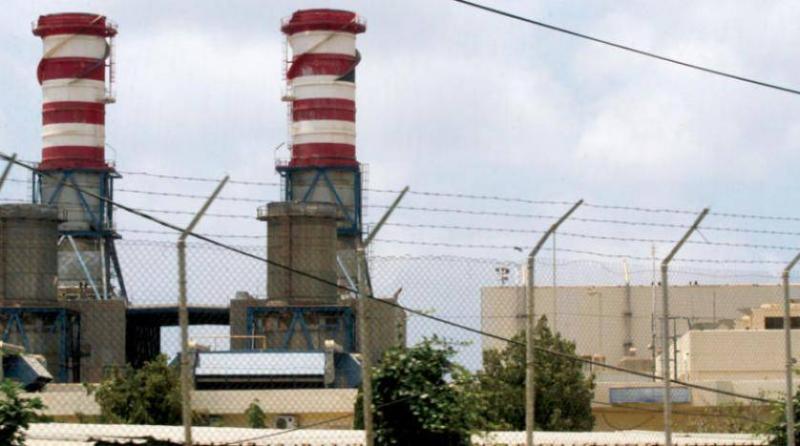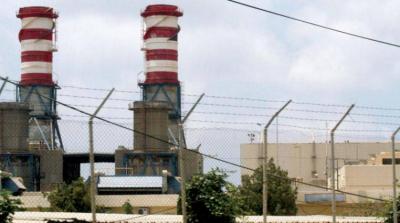December 2022 concluded with a continuation of near-total darkness, despite the Ministry of Energy's promises of ensuring electricity supply between 8 to 10 hours at the very least. What was the reality of the electricity sector throughout the year?
The Ministry of Energy relied on an anticipated loan from the World Bank to finance electricity imports from Jordan and gas imports from Egypt to increase the electricity supply. In January 2022, Lebanon signed a contract with Jordan to import 250 megawatts of electricity and an agreement for its transit through Syria. Jordan's Minister of Energy, Saleh Al-Kharabsheh, confirmed that Jordan would export electricity to Lebanon "in March, after completing the financing agreement with the World Bank." However, the signing of the gas import contract was delayed by several months.
While waiting for external financing and the start of imports, the Ministry had to take internal steps. In February, Minister of Energy Walid Fayad announced a three-year plan. In 2022, according to this plan, Electricité du Liban (EDL) would depend solely on Iraqi fuel to operate plants and secure three hours of supply. In 2023, EDL would start achieving financial sustainability and emerge from its deep financial woes. By 2024, EDL would achieve a surplus in its revenue.
By the end of the plan, the institution would realize financial savings, and citizens would primarily rely on its electricity, reducing their dependence on private generators, which, according to Fayad, would cost around 500,000 Lebanese pounds instead of approximately 2 million Lebanese pounds monthly.
**World Bank Distrust**
Lebanon delayed implementing the reforms required by the World Bank as a condition for financing electricity and gas imports. Consequently, March passed without Lebanon receiving Jordanian electricity. Due to the delay in reforms, the Bank's skepticism increased, leading it to request a political feasibility study in May, related to the financing project, to ensure that "the electricity sector is freed from political influence and that the loan would not be used to secure political funding, since the political aspect has destroyed the sector and prevents actual reforms.” This request followed EDL's failure to comply with the Bank's requirement to publish its monthly collection figures for clarity and financial transparency.
Although the Bank did not finance electricity imports, Lebanon signed an agreement with Egypt in June to supply 650 million cubic meters of gas annually, aimed at producing 400 megawatts. Fayad continued to press for financing, along with U.S. administration approval to exempt the transit of electricity and gas through Syria from the Caesar Act sanctions.
**Supply of Iraqi Fuel Oil**
During 2022, the primary source of fuel for the plants was a contract signed in 2021 for the supply of one million tons of Iraqi fuel oil, which Lebanon would exchange for suitable fuel for the plants. However, the Lebanese did not notice an increase in electricity supply, as the production volume was only enough to ensure the plants did not shut down, along with producing a negligible number of hours distributed selectively between certain regions and based on political influence.
To maintain this situation, Lebanon requested a renewal of the contract, but the fears of Iraqi officials increased as indicators of Lebanon's inability to repay the cost of fuel oil with goods and services, as stipulated in the contract, rose. Nonetheless, the contract was renewed in July 2022. Still, Iraqi Finance Minister Ali Allawi expressed the Iraqi government's need for controls "to manage the financial risks arising from the agreement, including the exchange rate and payment delays."
**Last Attempt**
The Ministry of Energy bypassed the steps that were supposed to be completed to improve the sector's reality. Instead of implementing reforms before increasing tariffs to bolster EDL's funding, the Ministry allowed the institution to raise tariffs. The institution decided to increase the electricity tariff to 10 cents for the first kilowatt-hour and 27 cents for each kilowatt beyond 100. It conditioned these prices on all public administrations and institutions settling their overdue bills and the state covering the cost of acquiring Iraqi fuel oil. If these two conditions were not met, the tariff would become 37 cents. The fixed fees would rise by 30 percent compared to their status before the financial crisis. Note that the Ministry of Energy repeatedly asserted that tariff increases would not occur before increasing supply hours.
In the name of alleged reforms, the Ministry of Energy called in November for those qualified to apply for membership in the regulatory body for the electricity sector, which would be evaluated by a committee appointed by the Minister of Energy. However, the law regulating the sector, which provided for the formation of this body, was issued in 2002 under number 462 and has never been implemented. The appointment of this body, along with the appointment of a board of directors for EDL, is regarded as one of the most significant reform items.
**End of 2022**
December ended with hopes of obtaining the World Bank financing in 2023. Thus, Lebanon had no choice but to rely on Iraqi fuel oil. Sources within the Oil Installations Management confirmed that the file is proceeding normally. A tender was launched to replace the first shipment of fuel oil with suitable fuel. The Ministry felt increasingly assured, aided by General Security Director Abbas Ibrahim's efforts to ensure the new contract with Iraq would proceed unimpeded, unlike the situation during the execution of the first contract.
To add further positivity from the perspective of the Ministry and EDL, the Central Bank approved selling dollars to the institution at the Sayrafa platform rate on the first of every month, with a 20 percent increase, following EDL's deposit of the required amount in Lebanese pounds into the Central Bank’s accounts. This would provide the institution with dollars to purchase fuel.
The hope for securing Lebanese pounds to buy dollars assumes pressure on service provider companies contracted by EDL to transfer their collections daily, as stipulated by the contract. However, no guarantees exist for this. The companies continue to withhold funds in their private accounts and restrict transfers, relying on political backing and the protection of the Ministry and EDL. Meanwhile, the Electricity Workers Syndicate demanded "opening a file on these companies to clarify the white thread from the black thread." For the syndicate, the "service provider companies and their supporters are the reason for the current situation in the Electricité du Liban."




